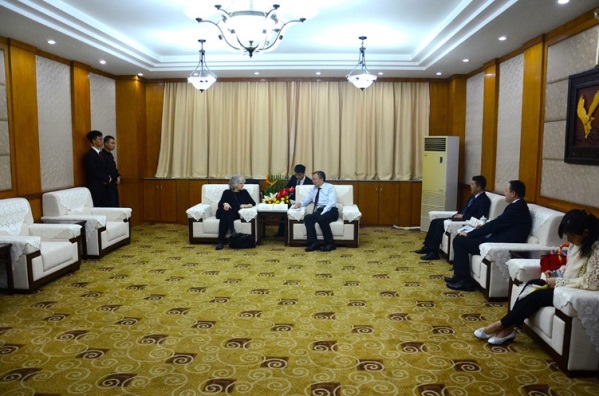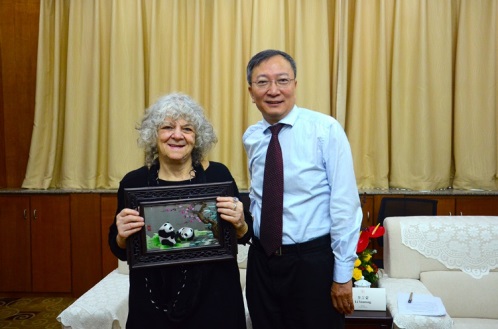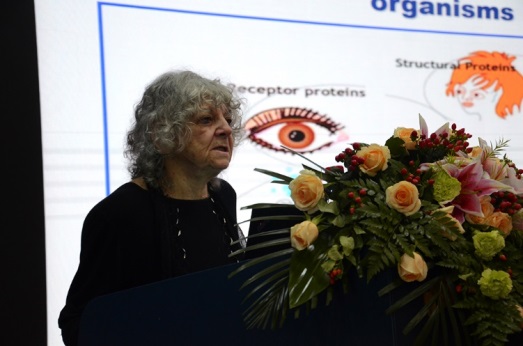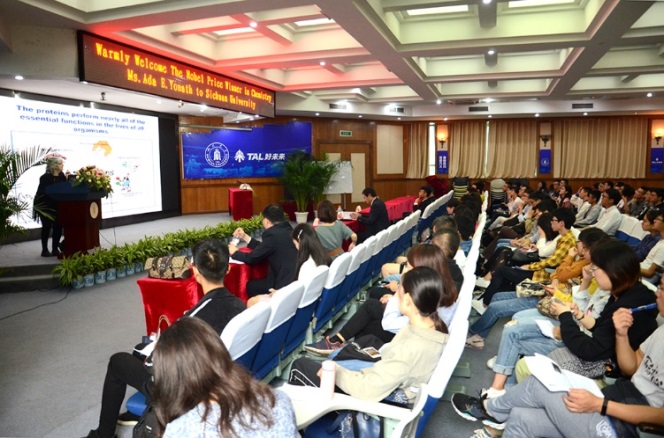Nobel Prize Laureate in chemistry, Professor Ada Yonath, visited Sichuan University and delivered a wonderful lecture entitled "Next Generation Species Eco-Friendly Antibiotics" to the faculty and students on September 11, 2018. President Li Yanrong, as well as the heads of relevant departments of this university, met with Ada Yonath and her delegation.

Ada Yonath, an Israeli female scientist, won the Wolf Prize in Chemistry in 2006 for her outstanding achievements in ribosomal protein synthesis and photoreaction in photosynthesis. She also won the UNESCO Achievement Award for Outstanding Women Scientists for her research on bacterial resistance in 2008, and the Nobel Prize in Chemistry in 2009 for her remarkable contribution to the research on ribosome structure and function.
President Li Yanrong, on behalf of SCU, greeted Professor Ada Yonath and her delegation. “Sichuan University boasts its good disciplinary foundation in medical science and chemistry. Professor Feng Xiaoming of the Chemistry College of Sichuan University won the Future Science Award, known as China’s Nobel Prize, this year,” he said. He hoped that both sides could deepen cooperation in medical science and chemistry. He also expressed his gratitude to Professor Ada Yonath for her academic speech to the teachers and students of Sichuan University.

Professor Ada Yonath also expressed her appreciation to SCU for its warm invitation and reception. She was very happy to discuss scientific issues with the teachers and students of Sichuan University. “I am currently engaged in the research in medical chemistry. Sichuan University does well in this field and I hope to further strengthen cooperation with this University in this regard”, she noted.

Afterwards, Professor Ada Yonath gave a lecture entitled "Next Generation Species Eco-Friendly Antibiotics" to the teachers and students of Sichuan University in the lecture hall of Chengyi Building. She focused her lecture on the structure and function of ribosome, explaining that ribosome, as a site for protein synthesis, is responsible for the translation of RNA into protein. “More than 40% of clinical antibiotics are targeted at ribosome, which fight large ribosome with small antibodies, thereby preventing protein synthesis in bacteria”, she said. In order to improve the pertinence of antibiotics, her team has begun to search for new connection points of antibiotics. In the subsequent interactive activities, students consulted Professor Ada Yonath on "how to do scientific research well", "how to foster interest in scientific research", "how to develop good research habits", and "how to overcome various difficulties in scientific research". She stressed that, a strong interest and curiosity in science, deep thinking and learning ability are necessary for doing a good job in scientific research, and that a strong team and a happy family are also an important guarantee of success.

After the speech, Professor Ada Yonath received a brief interview with reporters. “Sichuan University is a first-class university, whose students are enthusiastic for scientific research. The university is promoting cross-disciplinary integration, which is far-sighted,” she said. “In the future, science needs a large number of composite talents with multi-disciplinary background. Scientists with multi-disciplinary background need to team up in the research for a common goal in the future. That is an important path to ensure future scientific and technological innovation.”